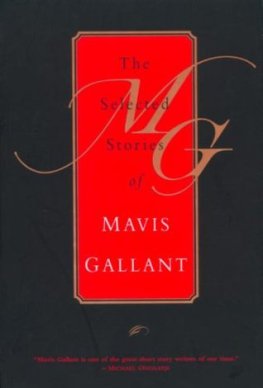Saki - Selected Stories by Saki
Here you can read online Saki - Selected Stories by Saki full text of the book (entire story) in english for free. Download pdf and epub, get meaning, cover and reviews about this ebook. year: 2014, publisher: Rupa Publications, genre: Detective and thriller. Description of the work, (preface) as well as reviews are available. Best literature library LitArk.com created for fans of good reading and offers a wide selection of genres:
Romance novel
Science fiction
Adventure
Detective
Science
History
Home and family
Prose
Art
Politics
Computer
Non-fiction
Religion
Business
Children
Humor
Choose a favorite category and find really read worthwhile books. Enjoy immersion in the world of imagination, feel the emotions of the characters or learn something new for yourself, make an fascinating discovery.
- Book:Selected Stories by Saki
- Author:
- Publisher:Rupa Publications
- Genre:
- Year:2014
- Rating:5 / 5
- Favourites:Add to favourites
- Your mark:
- 100
- 1
- 2
- 3
- 4
- 5
Selected Stories by Saki: summary, description and annotation
We offer to read an annotation, description, summary or preface (depends on what the author of the book "Selected Stories by Saki" wrote himself). If you haven't found the necessary information about the book — write in the comments, we will try to find it.
Saki: author's other books
Who wrote Selected Stories by Saki? Find out the surname, the name of the author of the book and a list of all author's works by series.
Selected Stories by Saki — read online for free the complete book (whole text) full work
Below is the text of the book, divided by pages. System saving the place of the last page read, allows you to conveniently read the book "Selected Stories by Saki" online for free, without having to search again every time where you left off. Put a bookmark, and you can go to the page where you finished reading at any time.
Font size:
Interval:
Bookmark:
Selected Stories by
SAKI
Books in this Series:
Selected Stories by O. Henry
Selected Stories by Anton Chekhov
Selected Stories by Guy de Maupassant
Selected Stories by Mark Twain
Selected Stories by Edgar Allan Poe
Selected Stories by Rudyard Kipling
Selected Stories by Saki
Selected Stories by Oscar Wilde
Selected Stories by Honor de Balzac
Selected Stories by Charles Dickens
Selected Stories by D.H. Lawrence
Selected Stories by H. G. Wells
Selected Stories by Jack London
Selected Stories by Joseph Conrad
Selected Stories by Leo Tolstoy
Selected Stories by Sir Arthur Conan Doyle
Selected Stories by
SAKI

Published by
Rupa Publications India Pvt. Ltd 2014
7/16, Ansari Road, Daryaganj
New Delhi 110002
Selection and Introduction copyright Terry OBrien 2014
All rights reserved.
No part of this publication may be reproduced, transmitted, or stored in a retrieval system, in any form or by any means, electronic, mechanical, photocopying, recording or otherwise, without the prior permission of the publisher.
ISBN: 978-81-291-3138-6
First impression 2014
10 9 8 7 6 5 4 3 2 1
This book is sold subject to the condition that it shall not, by way of trade or otherwise, be lent, resold, hired out, or otherwise circulated, without the publishers prior consent, in any form of binding or cover other than that in which it is published.
CONTENTS
INTRODUCTION
Saki was the pen name of British author Hector Hugh Munro.
Much in less is the present-day mantra of writing. It is a great time to remember a writer like Saki who often said more in the two thousand or so words of a short story than many others have in a lifetime. It is for the terse brilliance of his short stories that he is remembered almost a hundred years after his death.
Hector Hugh Munro (Saki) (18 December 187013 November 1916) was a master of the short story that is a mixture of humorous satire, irony and the macabre. The stupidities and hypocrisy of conventional society are tersely presented in his stories. His mastery in writing short stories can be compared to that of O. Henry.
The Mouse portrays what happens when a man is on a train, sharing his compartment with a woman, and finds that there is a mouse climbing up the leg of his pants. And he cant get it out without taking his pants at least partly off!
In Mrs Packletides Tiger, Mrs Packletide wanted to kill a tiger, not because of her lust to kill, but to outshine her close friend who had recently been carried in an aeroplane.
Down Pens talks about the conflict of whether or not to write people a thank you note every time they decide to go out and purchase you a gift.
The Storyteller is about a young bachelor sharing a compartment in a train with an old lady, two small girls and a small boy and how he ends up telling them a very improper story.
In Minister of Grace, a young Duke takes it upon himself to make changes in the political arena by replacing real cabinet member with angels or clones.
Does colour have anything to do with Nursery Tea and Le Five Oclock? Read A Bread and Butter Miss to find out.
In The Toys of Peace Harey, at his sisters request, brings toys that have nothing to do with battles and fighting as gifts to his nephew in an effort to foster interests in things other than war.
Sacrifice, conflict and a ceaseless struggle have made the world what it is. Is that so? Find out in A Sacrifice to Necessity.
Sletherby thinks he has a great story to tell about the man he encountered on the train. He laid a trap all right, but was A Shot in the Dark on target?
In The East Wing, a house-party with its typical social mix has a breathless hostess, and is bested by a fire in the middle of the night in the east wing of the house.
Gabriel-Ernest starts with a warning: There is a wild beast in your woods. There was indeed a wild beast in Van Cheeles woods. What was it?
Esm is a hunting story quite unlike the others. The Barness tells Clovis of a hyena she and her friend Constance encountered alone in the countryside.
In Tobermory, one guest announces to the other at a country house party that he has perfected a procedure to teach animals human speech; and he demonstrates this on his hosts cat, Tobermory.
In The Bull, Tom, a farmer, receives a visit from his half-brother Laurence, who is an artist and a painter of animals. Laurence tells Tom he sold a painting of a bull for 300 when Tom found it difficult to sell a bull for 100!
The Interlopers is a story of two men whose families have fought over a forest in the eastern Carpathian mountains for generations.
Read The Schartz-Metterklume Method to find out if there is a method of making children understand history?
The Match-maker helps find out if in the end all are happy and smarter.
Hermann the IrascibleA Story of the Great Weep is about a great plague among the royalty in England. There is a big movement in the country to give women the vote; Hermann does not like the idea but does not feel he is in a position to reject the idea either.
An infant goes missing. What happens next? Read The Quest to know.
In Filboid Studge, the Story of a Mouse that Helped, read how Mark Spayley helped Duncan Dullamy from the disaster of Pipenta.
In The Open Window, Framton Nuttle, a nervous man, has come to stay in the countryside for his health. His sister has given him letters of introduction to families in the neighbourhood. He goes to visit Mrs Soppleton and meet her fifteen-year-old niece.
In The Unrest-Cure, Clovis Sangrail, a sly young man, overhears the complacent middle-aged Huddle complaining of his own addiction to routine and aversion to change. What happens next?
Start a Saki story and you will finish it. Finish one and you will start another, and having finished them all you will never forget them. They remain an addiction because they are so much more than expected.
THE MOUSE
T heodoric Voler had been brought up, from infancy to the confines of middle age, by a fond mother whose chief solicitude had been to keep him screened from what she called the coarser realities of life. When she died she left Theodoric alone in a world that was as real as ever, and a good deal coarser than he considered it had any need to be. To a man of his temperament and upbringing even a simple railway journey was crammed with petty annoyances and minor discords, and as he settled himself down in a second-class compartment one September morning he was conscious of ruffled feelings and general mental discomposure. He had been staying at a country vicarage, the inmates of which had been certainly neither brutal nor bacchanalian, but their supervision of the domestic establishment had been of that lax order which invites disaster. The pony carriage that was to take him to the station had never been properly ordered, and when the moment for his departure drew near, the handyman who should have produced the required article was nowhere to be found. In this emergency Theodoric, to his mute but very intense disgust, found himself obliged to collaborate with the vicars daughter in the task of harnessing the pony, which necessitated groping about in an ill-lighted outbuilding called a stable, and smelling very like oneexcept in patches where it smelled of mice. Without being actually afraid of mice, Theodoric classed them among the coarser incidents of life, and considered that Providence, with a little exercise of moral courage, might long ago have recognized that they were not indispensable, and have withdrawn them from circulation. As the train glided out of the station Theodorics nervous imagination accused himself of exhaling a weak odour of stable yard, and possibly of displaying a mouldy straw or two on his unusually well-brushed garments. Fortunately the only other occupation of the compartment, a lady of about the same age as himself, seemed inclined for slumber rather than scrutiny; the train was not due to stop till the terminus was reached, in about an hours time, and the carriage was of the old-fashioned sort that held no communication with a corridor, therefore no further travelling companions were likely to intrude on Theodorics semiprivacy. And yet the train had scarcely attained its normal speed before he became reluctantly but vividly aware that he was not alone with the slumbering lady; he was not even alone in his own clothes. A warm, creeping movement over his flesh betrayed the unwelcome and highly resented presence, unseen but poignant, of a strayed mouse, that had evidently dashed into its present retreat during the episode of the pony harnessing. Furtive stamps and shakes and wildly directed pinches failed to dislodge the intruder, whose motto, indeed, seemed to be Excelsior; and the lawful occupant of the clothes lay back against the cushions and endeavoured rapidly to evolve some means for putting an end to the dual ownership. It was unthinkable that he should continue for the space of a whole hour in the horrible position of a Rowton House for vagrant mice-already his imagination had at least doubled the numbers of the alien invasion. On the other hand, nothing less drastic than partial disrobing would ease him of his tormentor, and to undress in the presence of a lady, even for so laudable a purpose, was an idea that made his ear tips tingle in a blush of abject shame. He had never been able to bring himself even to the mild exposure of openwork socks in the presence of the fair sex. And yetthe lady in this case was to all appearances soundly and securely asleep; the mouse, on the other hand, seemed to be trying to crowd a Wanderjahr into a few strenuous minutes. If there is any truth in the theory of transmigration, this particular mouse must certainly have been, in a former state, a member of the Alpine Club. Sometimes in its eagerness it lost its footing and slipped for half an inch or so; and then, in fright, or more probably temper, it bit. Theodoric was goaded into the most audacious undertaking of his life. Crimsoning to the hue of a beetroot and keeping an agonized watch on his slumbering fellow traveller, he swiftly and noiselessly secured the ends of his railway rug to the racks on either side of the carriage, so that a substantial curtain hung athwart the compartment. In the narrow dressing room that he had thus improvised he proceeded with violent haste to extricate himself partially and the mouse entirely from the surrounding casings of tweed and half-wool. As the unravelled mouse gave a wild leap to the floor, the rug, slipping its fastening at either end, also came down with a heart-curdling flop, and almost simultaneously the awakened sleeper opened her eyes. With a movement almost quicker than the mouses, Theodoric pounced on the rug and hauled its ample folds chin-high over his dismantled person as he collapsed into the farther corner of the carriage. The blood raced and beat in the veins of his neck and forehead, while he waited dumbly for the communication cord to be pulled. The lady, however, contented herself with a silent stare at her strangely muffled companion. How much had she seen, Theodoric queried to himself; and in any case what on earth must she think of his present posture?
Next pageFont size:
Interval:
Bookmark:
Similar books «Selected Stories by Saki»
Look at similar books to Selected Stories by Saki. We have selected literature similar in name and meaning in the hope of providing readers with more options to find new, interesting, not yet read works.
Discussion, reviews of the book Selected Stories by Saki and just readers' own opinions. Leave your comments, write what you think about the work, its meaning or the main characters. Specify what exactly you liked and what you didn't like, and why you think so.











